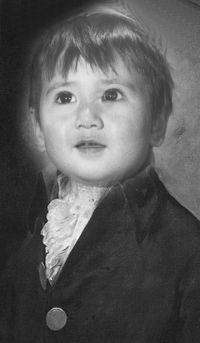William Pitt the Younger
| ||
| Term of office: | 19 December 1783 – 14 March 1801 | |
| Preceded by: | Birth | |
| Succeeded by: | Naptime | |
| Date of birth: | 19 December 1783 | |
| Place of birth: | London | |
| Political party: | Independent Diaper | |
William Pitt the Younger, the son of William Pitt the Elder (thirty years later William Pitt the Senior Citizen) and Lady Hester Pitt was born in Kent, even though the infobox to the right says it was in London. His father was an important statesman who told Whig Prime Minister Charles Watson-Wentworth, Marquis of Rockingham that a baby could run the country better. When Rockingham scoffed at this, Pitt placed his son on the election ticket. Pitt the Younger won by a landslide for the Tories and Watson-Wentworth went off into obscurity, starting a charitable organization for people with names based around alliteration.
Political Career[edit]
After the French Revolution in 1789, William attempted to remain neutral because according to his schoolteachers "war is bad." After the French declared war and then tried invading, there didn't seem to be any other option. William attempted to draw up a coalition with the various superpowers of Europe, but Parliament cut Crayola funds and with no crayons he could draw no more. Any attempt to form Coalitions ended at the Battle of Marengo. William was very fussy for several hours until he was finally put to bed.
There was much dissension in Ireland during this time, as Irish rebels believed the French would help them overthrow their British rulers. William was burned in effigy, with countless numbers of baby dolls tossed into bonfires across Dublin. During this unfortunate incident many REAL babies were thrown into the fires and the Irish population took a dive, allowing the British to regain control. With a fresh supply of crayons William drew up a picture of a lerprechaun and a British soldier holding hands. MP's across the islands liked the drawing so much they formed the United Kingdom of Great Britain and Ireland on 1 January 1801.
Some time after this various members of Parliament exclaimed, "Wait a minute...we're being led by a BABY!" A declaration of no-faith in Parliament was called by King George III and William the Younger was forced to resign. In his resignation speech William the Younger simply said, "OK I love you bye-bye!."
This should have been the end of little William's political career but in 1804 the King asked the boy back as there was 'nasty smell of old diapers' coming from a draw in the nursery. William said he would clean them up and rolled out a towel to have his bottom powdered and his tummy tickled 'by Nursey'. However his nanny was actually a secret agent of Napoleon Bonaparte and she gave William a bottle of milk laced with brandy to drink. He guzzled it all down , burped and then disappeared in an example of underage spontaneous combustion.
Legacy[edit]
William Pitt the Younger was a powerful Prime Minister, gaining influence from even the minority parties just because he was so gosh-darn cute. He helped define the role of the Prime Minister as a source of entertainment for the nation. He was not, however, the supreme political influence in the nation, for his mom was usually nearby to set him in line if he misbehaved. Pitt was Prime Minister not because he enjoyed the support of the electorate or of the House of Commons, but because he was a good boy.
One of Pitt's most important accomplishments was the abolition of spanking as a form of capital punishment. Pitt helped the Government manage the mounting national debt by sticking the IOU notes in his mouth, attributed to the fact his pacifier could not be found. Pitt's other domestic plans, however, were not as successful; he failed to secure bedtime at 9:00 as opposed to 8:00.
Quotations[edit]
- "Goo-goo." (reply, at the Guildhall, 1800, in response to the Lord Mayor toasting him as the 'Saviour of Europe')
- "Wah!" (In response to accusations from Charles James Fox)

